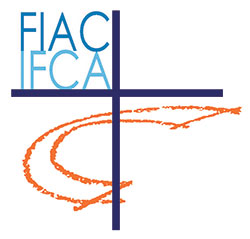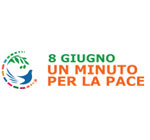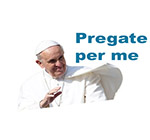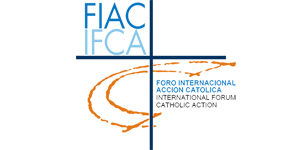Catholics and Europe Piotr MAZURKIEWICZ – General Secretary of Episcopate Commission of the European Union
DISPONBILE SOLO IN INGLESE
DISPONBILE SOLO IN INGLESE
We should probably start our reflections from attempt of defining what we mean saying “Europe”. We , Europeans say the word “Europe” with pride, placing it in one line with Asia, Africa, America. However, Europe is a continent in another meaning than the others.
It is not a continent in geographical sense but cultural one. It is a geographical space where specific culture was shaped without similarities elsewhere. It was made by Christianity, which radically transformed Greek-Roman antiquity heritage.
Christianity contributed to the antiquity world first and foremost the idea of the only God and closely united with this teaching of man creation on the image and likeness of God (imago Dei). A man as a creature of indefeasible dignity is granted with freedom, which finds its final fulfillment in the act of love of God and a neighbor. Recognition of freedom, connected with necessity of respect to unchangeable moral law was primate gift of Christian religion, contributed to fatalistic world of antic culture. “Remove the concept of a person emerging from great Christological definitions – Denis de Rougemont wrote – and instead of Europe we will have something like India.”
Europe as a continent of culture, during history has experienced expanding to other continents and shrinkage. It has experienced its ups and downs, taking where its culture reached both – its wealth and its poverty.
Facing one such crisis, which was also called “suicide of Europe” the idea of European integration was born. Fathers of Europe, as they are called today, which list starts righteously with three Catholic politicians: Robert Schuman, Alcide de Gasperi and Conrad Adenauer, terrified with cruelty of the events, were searching for effective political mean to prevent madness repetition. Uniting Europe was then Catholic not only by the fact, that the Catholics were most numerous, but also because of strong and undoubtful involvement of Catholic laity. With time it even led to accusation, that integration is/can be a tool in re-Catholisation of the continent.
Support of the Catholic Church institution for European integration process was unequivocal from the very beginning. It had particular intensity in the years of pontificate of John Paul II, who saw in it one of the means which could serve in liberating the states of Middle and Eastern Europe from communism oppression and uniting the whole continent as “Europe of two lungs”.
What is it like today, however? In the last years of His pontificate the dispute grew between John Paul II and European politics. It started during the works of the Convent on Charter of Fundamental Rights and continued in the period of works preparing the text of Constitutional Treaty. That argument did not diminish Pope’s support to the very project of integration and the planned enlargement of EU. The Pope’s conception was very widely thought. He expected EU recognized the rights of all European nations to the Union membership if their sovereign decision approved it. The problem of borders appeared only in reference to the states, which culture was not shaped on the base of Christianity – and which by that fact seemed to belong to other civilizations (Eclessia in Europa).
Today Treaty of Lisbon and Charter of Fundamental Rights are obligatory principle in EU together with those elements, which constituted the reason of serious concern of John Paul II and his successor. The Catholics’ attitude, also those ones who opposed the Treaty ratification can not limit, however, to complaining because of European law, institutions or politics. It can be said that the more a Catholic is disillusioned with the present shape of European policy, the more reasons he has to involve in it. The most stubborn skeptics should be dedicated a remark made by John Paul II in adhortation “Christifidele laici”, although it does not refer directly to EU policy, but to Western politics in general: “(42) quotation in French”. If, therefore, somebody thinks, that today European civilizational project is in crisis, he also should concede, that withdrawing the Catholics from public activity is not a medicine, but on the contrary – bigger involvement and taking up a higher degree of responsibility for it is necessary.
What is the current condition of Europe? Are the Popes right when they speak of “silent apostasy” of a satisfied man, who lives in the way as if “God did not exist at all” or about “hatred of the West to itself” which can lead to perverse end of all things” (Spe salvi)? Is such judgment on civilization in which we live simply unjust?
To refer to the objection put like this it is worth recalling the reflection of Paul Ricoeur, who remarked that “Civilization does not develop or succumb to stagnation simultaneously under all circumstances. It is composed of a number of development lines which course can be to some extent examined separately”. The above radical opinions can be therefore right, but only partly. It is not doubtful that Europe develops in spheres of science, technique, economy. It leads to masses’ liberating from elementary poverty and opens before them ways to prosperity. It brings consequences not only to material domain but also causes liberating multitude of people from illiteracy and popularizes access to basic cultural property.
Where the advanced technology is engaged we think about progress. But is it always correct thinking? USG examination device is commonly used for curing but it is also used as a tool to execute selective abortion. Science development helps to prolong life span but also to make experiments on human embryos. So the Pope may not have mistaken so much saying: ” Due to its noticeable scientific and technical aspect Western culture patterns fascinate and attract, but unfortunately more and more noticeably it turns out that they are subjected to gradual depletion in humanistic, spiritual and moral layer.”
But Europe should also be appreciated in this range. Robert Spaemann remarks, that some elements of Christian ethos have been assimilated by the Europeans so deeply that departure from them can be regarded as crime or misdemanour. “Somebody who does not react on a motorway, the way Merciful Samaritan acted – Spaemann writes – will be blamed because of refusing help. Our sensitivity towards respect to a woman dignity, children exploitation – also sexual, death penalty executing has risen.
EU institutions guarantee peace and solidarity among European nations with a relative success. It does not diminish, however, the fright in contact with common abortion, euthanasia, experiments on human embryos or depreciation of marriage institution as a partnership of one man and one woman in Western civilization. It does not diminish the concern of Europe in which “demographic winter falls”.
It should be realized, however, that not every continuation of history on the grounds “between the Atlantic and the Ural Mountains” can be regarded as continuation of European development. Since Europe and its culture can be destroyed, despite the fact that Europe will still exist in geographical and political sense. Europe which got rid of Absolute idea, this what is unconditional and in consequence subjective conception of human person, would not be Europe any more, but only the name in the world’s map. Only “the name of the place – as Robert Spaemann claims – in which elimination of a man started”. It seems that those words are not exaggerated, because Europe, which does not share its faith with the world “will be inevitably exporting its non-believing, i.e. the conviction that no truth, right or God exists and by that will destroy great religious and moral traditions of humanity, will destroy the foundation of what is called “to be a human” and will subdue the others to the right which will lead to Europe self-destruction”. Christians’ vocation is not only to distinguish politics and eschatology but also guard ethical contents of European project. It can happen, however, that elements which unmistakably can be defined as post-European or even anti-European can win in the culture of the Old Continent. Europe as post-Christian continent could also become post-European one.
Robert Schuman also wrote about this problem in some way. In his book “Pour l’Europe” we read: “Democracy owes its existence to Christianity. It was born at the time when a man was called to fulfill in his temporal life the idea of human person’s dignity, within the frames of personal freedom, respect to the rights of everybody and by practicing brotherly love towards everyone. Never before Jesus Christ’s time had similar ideas been formed. Hence, democracy is connected with Christianity doctrinally and chronologically. It was shaped together with Christianity in stages, in long blind searching, frequently paying high prices for mistakes and returning to barbarism” (p.34). Genetic relation between democracy and Christianity is, in Schuman’s opinion so deep, that it enables to put forth the thesis:” Democracy will either be Christian or it will not exist at all. Anti-Christian democracy would be a caricature tending to immerge in tyranny or anarchy (p.39).
To avoid that sad prophecy become a fact, greater Christian engagement in social and political life on local, national and European level is indispensable.
It also concerns activity in interpretations of records in the Chart of Fundamental Rights and the whole Lisbon Treaty. Once John Paul II wrote, that bigger concern and effort is absolutely necessary to make law relatively well protect indefeasible dignity of every being created as the image and likeness of God, but it is also necessary to have awareness that even the best law does not protect what died in human heart. Therefore it is not possible to separate a question about European civilization’s future from the question about Christianity future in Europe, not only in the meaning of external mission leading to crowding churches again but also from Christianity future in a heart of every Christened man.
Robert Schuman wrote:” Christian civilization should not be a product of any violent and instant revolution but gradual transformation, patient education refreshed by great tasks of mercy, devotion and humility, which make a base of a new society. Only during long centuries of internal fights and gradual purification such a civilization could evolve towards the suggested ideal and could liberate from pagan relics paying the price of painful shocks and numerous quests (p. 37). Today also there is a ground to doubt in Europe’s future and the future of Christianity in Europe, although leading out both Christianity and Europe from the stage of crisis will probably not take place by any rapid shock but by gradual transformation, patient education refreshed by great tasks of mercy, devotion and humility.
In Brussels, opposite to European Commission building there stands a statue of Robert Schuman stepping into an empty non-defined space. His personal courage and creative fidelity weighed to a large extent on previous success of European union project. This courage and creative fidelity of the Catholics is also needed by today’s Europe and the Church in Europe.
V European continental Meeting – Kracow, 6-9 May 2010
“LIFE, BREAD, PEACE, FREEDOM”. Catholic Action Lay People in their towns for a more humane world
- rsris_slide_link:
- wps_subtitle:
- Piotr MAZURKIEWICZ - General Secretary of Episcopate Commission of the European Union
DISPONBILE SOLO IN INGLESE - pl_view_post:
- 1312







